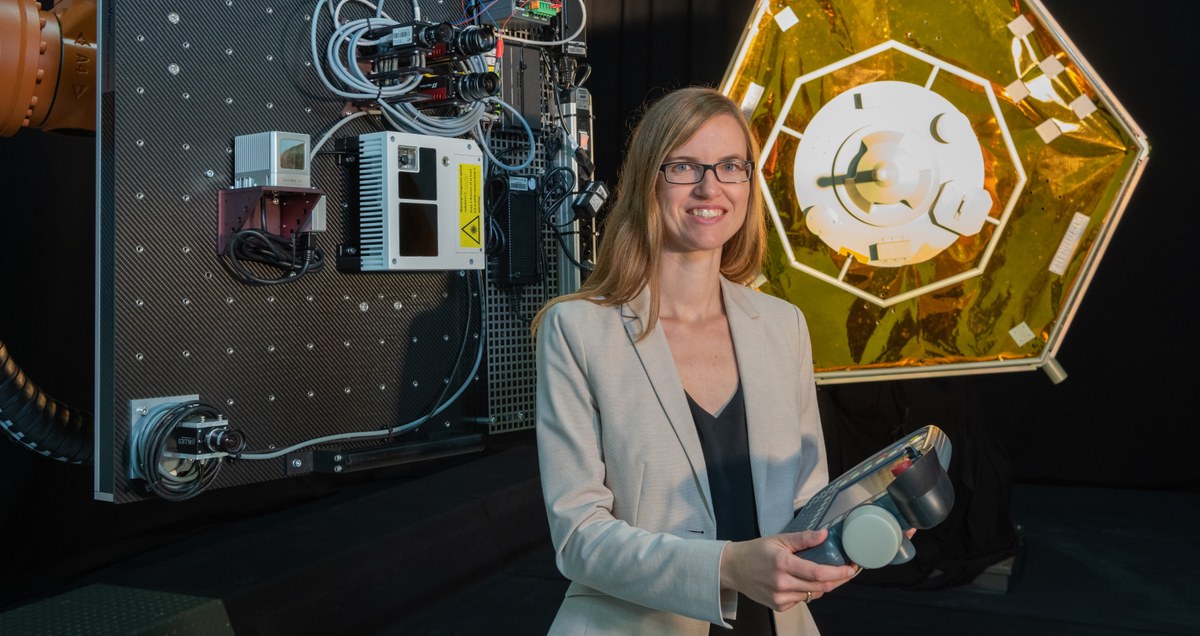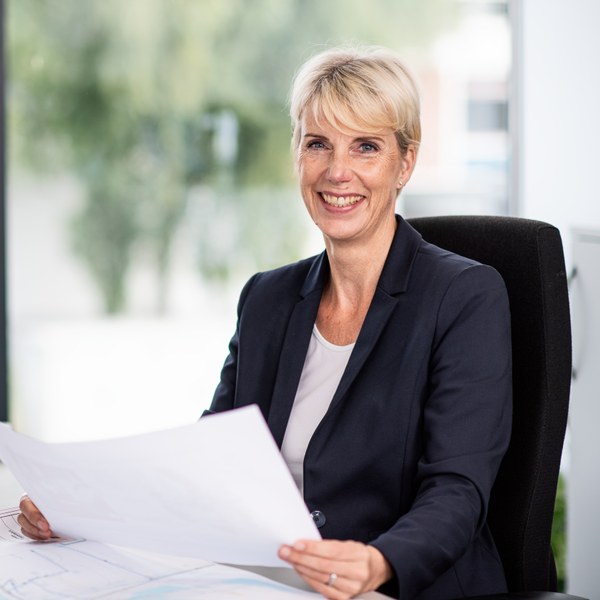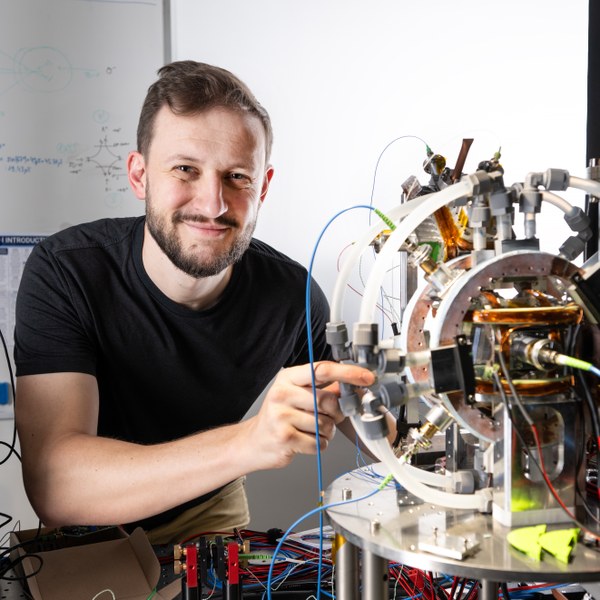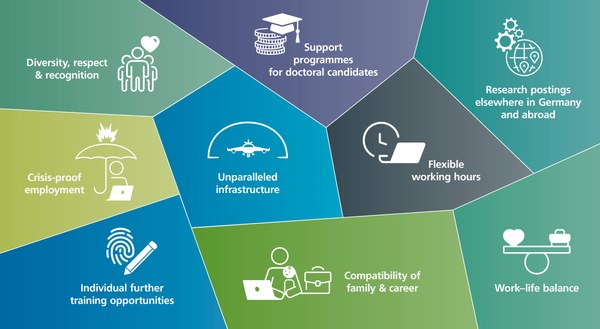Heike Frei
Field of study: Mathematics
Now: Space Operations and Astronaut Training
Heike Frei has a doctorate in mathematics and joined DLR's Space Operations and Astronaut Training facility in Oberpfaffenhofen as a research assistant in 2010. Today, she is head of the Space Flight Technology department. In this interview, she provides insights into her work.
Heike, what do you look forward to when coming to work in the morning?
Heike: Every morning, I am excited to see what the day will bring. I look forward to meeting people, to the varied topics and to supporting, helping or finding a solution when needed.
What are you researching or working on?
Heike: At the German Space Operations Center (GSOC), I am the head of the Space Flight Technology department, which has almost 40 employees who work in four specialist groups on different technologies and services. The topic of determining and controlling satellite orbits and orientations is one of our focus areas. This is used in the preparation and operation of satellite missions as well as in research projects and studies. The work includes absolute and relative orbit determination and control, autonomous navigation and high-precision navigation.
Another focus is on space situational awareness, collision prevention as well as the observation and removal of space debris and the technology required to do so. This involves the development of software and hardware concepts and the operation of simulators, robotic facilities and telescope stations. My department also works on the topic of onboard autonomy, either for navigation or evaluation of payload data on board satellites.
„The motivation and continued development of personnel are very important to me“
Applied research and satellite operations are very closely linked here. For a successful mission, you need both technology and operations.
I personally deal with the strategic and organisational development of the department, manage the staff in disciplinary matters, foster cooperation internally and externally, coordinate research and development projects across groups and departments, and supervise doctoral theses.
What does your typical working day involve?
Heike: Every day is different for me. Sometimes I am busy with financial issues, sometimes I support acquisitions or new collaborations, sometimes I advise colleagues on their issues, sometimes I review publications written by my staff and sometimes I analyse current trends in spaceflight or create a presentation. Of course, meetings, public relations and routine tasks such as approving applications are also part of my daily work.
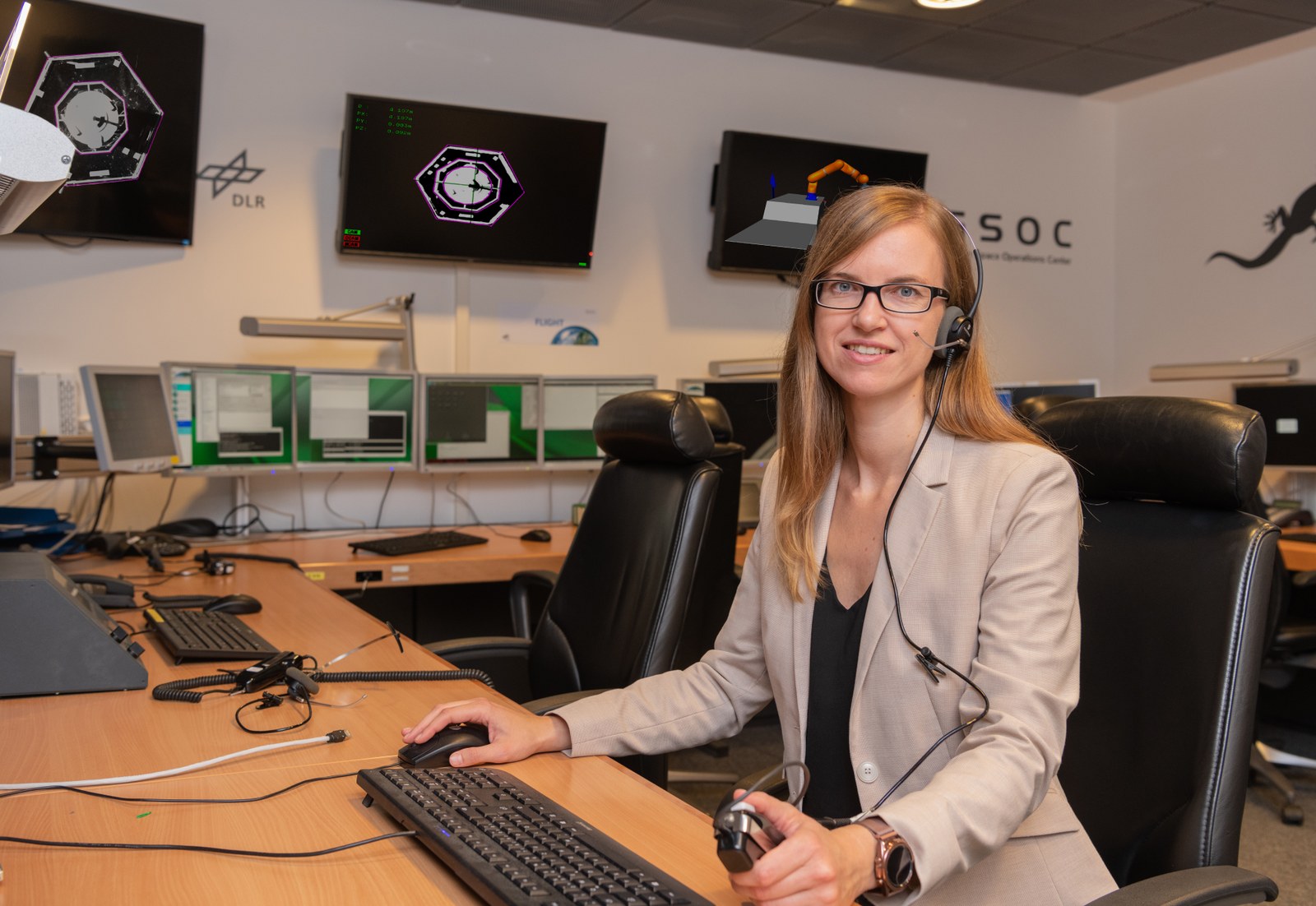
How can you as a manager support the work of your team?
Heike: It is very important for me to have regular personal conversations, whether it is an official meeting or a spontaneous chat in the hallway or at lunch. As a manager, it is important for me to listen, to show interest, to offer advice or solutions when needed.
I am also happy to act as a spokesperson or mediator to other facilities or to higher management levels. The topic of occupational safety is also important to me, especially in laboratories, in robotic simulation facilities or during night shifts, for example, during satellite launches. I want to offer my team a safe work environment in which they can perform at their best.
„My work is challenging and never boring. I can make active contributions and bring about change.“
What are the highlights of your work?
Heike: I am always particularly happy when I have been able to help others make progress, whether it is a successful meeting with an important partner, a contribution to a strategic topic, progress with a doctoral student or when we have been able to find solutions to a human resources or financial issue, for example.
A highlight for me is when, sometimes after years of work, the technologies developed in my department are successfully used in a demonstration, a flight experiment or in routine flight operations.
I recently had particular pleasure giving a group lecture at the University of Würzburg. I often have the feeling that my work makes a difference, and I experience a lot of appreciation and gratitude.
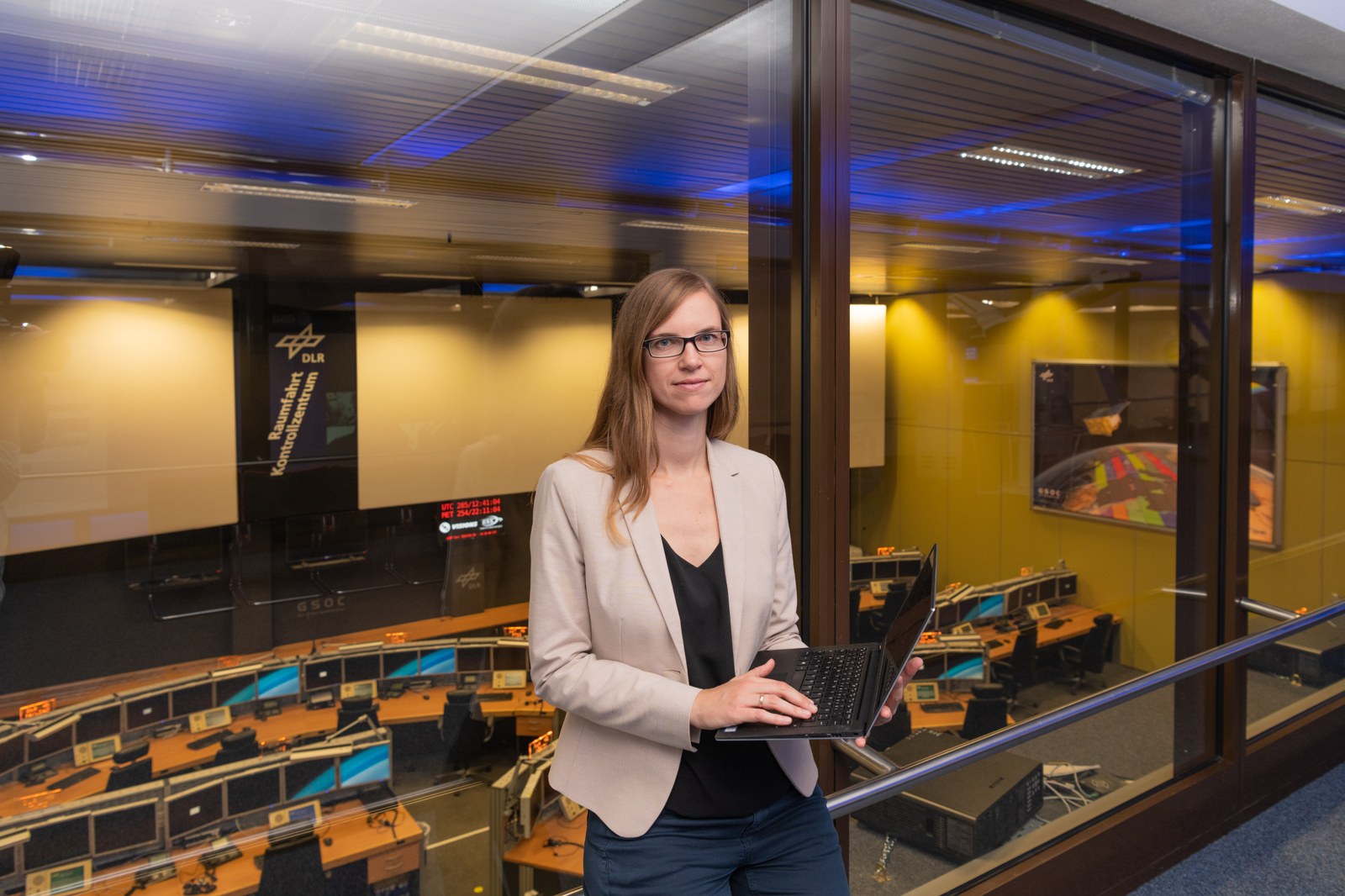
What values do you bring to your work at DLR?
Heike: Personnel management and, in particular, the motivation and continued development of personnel are very important to me. I find it important to communicate openly, directly and respectfully, to address problems promptly and, if necessary, to solve them pragmatically. Other important values for me are reliability, honesty and adaptability to changes that life brings, be they of a technical nature or changes in politics, society, at DLR or in our department.
Leave us a final thought.
Heike: My work is challenging and never boring. I can make active contributions and bring about change. At the same time, my work is very compatible with my personal, family life – being a team leader at DLR and at the same time the mother of a small child must not conflict.

